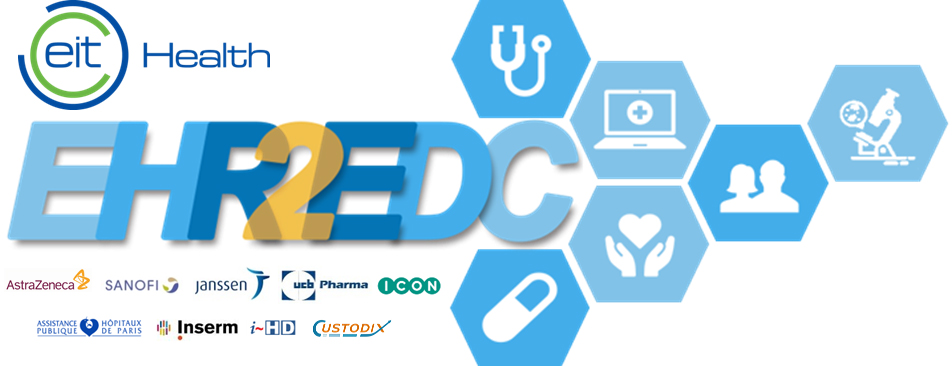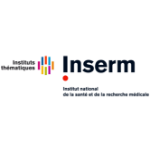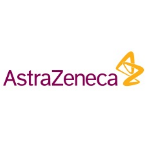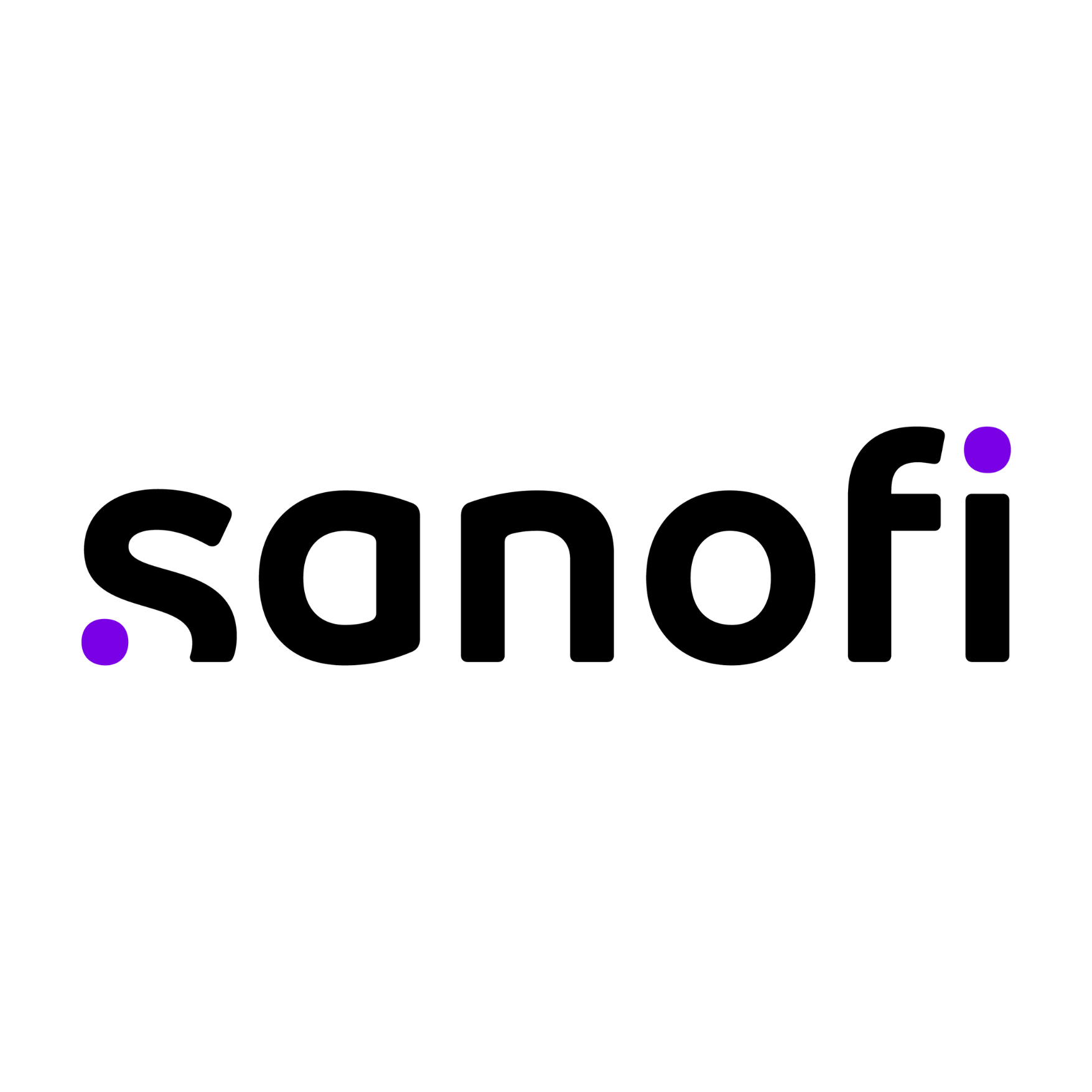From electronic health records to electronic data capture systems
This project will enable the collection of clinical data from the electronic health records (EHRs) of several hospitals, to develop a system that can improve the efficiency of medical research, including research involving real world data. The EHR2EDC solution will enhance global research and accelerate access to treatment innovations.
Origins
With increased use of EHRs, hospitals generate a vast amount of eHealth data that could benefit medical research, but there are inefficiencies. Nearly 50% of data is duplicated across EHRs and the electronic data capture systems (EDCs) used for clinical trials. This wastes time as it requires data cleaning and verifications activities. Researchers need to be able to re-use health data ethically and efficiently across multiple systems.
Team
The consortium behind EHR2EDC is a collaborative effort driven by industry partners, hospital partners, an SME and a not-for-profit organisation aiming to promote and catalyse the most efficient and trustworthy uses of health data and interoperability, for optimising health and knowledge discovery.
The project
EHR2EDC leverages a pre-competitive industry collaboration that brings together global industry actors to improve data sharing for research. This project scales up and adds value to InSite™, a clinical research technology platform developed by the IMI EHR4CR project to facilitate secondary use of hospital EHR data.
EHR2EDC (Electronic Health Records to Electronic Data Capture systems) will allow for the automatic capture of data from different hospital record systems. This will mean approximately 15% of the data of clinical protocols that was previously re-entered manually can be transferred automatically. The system will reduce human errors, the workload of stakeholders, the complexity of data entry and the amount of time spent on data collection. The solution developed will be fully compliant with relevant regulatory requirements such as GxPs and GDPR.

This project will deliver:
- Clinical data standards and mapping-library algorithms, using FHIR (Fast Healthcare Interoperability Resources) profiles, to enable data interoperability between EHRs and EDC systems.
- Regulatory acceptance criteria to enable EHR data to be used as an eSource in support of clinical development studies.
- InSite Module S3, which is EHR2EDC software to allow site coordinators and investigators to reduce manual duplicative data entry.
- Conduct of Pilot clinical trials at project members’ hospitals, to fully validate EHR2EDC capabilities.
- Publications and presentations to promote project outputs, to be used within the biomedical research community and foster adoption of developed standards.
Impact
EHRs are allowing a pivotal change in clinical trials and patient care, promising huge benefits for medical science, patients and citizens. This project enables better use of EHRs by:
- reducing trial complexity, enabling near real-time patient safety monitoring, and reducing costs of new medicine;
- increasing European attractiveness to access larger patient data through a large EHRs network;
- enabling health learning systems to improve patient care and reduce costs.
Why this is an EIT Health project
The way this project uses cross-sector networking and Europe-wide cooperation to promote research and innovation goes to the core of what EIT Health is all about. The project is also in keeping with the EIT Health Focus Area of “Harnessing the Power of Real World Data”, because it uses the data naturally generated by hospitals to drive innovation.
External Partners
- ICON
- The European Institute for Innovation through Health Data (i~HD)
- Custodix
- Hospital 12 de Octubre (Madrid, Spain)
- Hannover Medical School (Hannover, Germany)
- Istituto Scientifico Romagnolo per lo Studio e la Cura dei Tumori (IRST) (Meldola, Italy)
This project can only be done through a fully collaborative effort, and would not have been possible without the team spirit, the mutual trust, and the pool of experts and the support of EIT Health framework.
Nadir Ammour, project leader
Members

CLC/InnoStars: France
Partner classification: Tech Transfer, Clusters, Other NGOs, Hospital / University Hospital
Partner type: Core Partner
We are a teaching hospital with a European dimension globally recognized. Our 39 hospitals attended each year 8 million sick people: consultation in emergency hospitalizations during scheduled or home hospitalization. We provide a public health service for all, 24/24, and it is for us both a duty and pride.
Assistance Publique - Hôpitaux de Paris
Assistance Publique - Hôpitaux de Paris, 1 Avenue Claude Vellefaux, 75010 Paris, France


CLC/InnoStars: France
Partner classification: Research, Tech Transfer, Clusters, Other NGOs
Founded in 1964, the French National Institute of Health and Medical Research (Inserm) is a public scientific and technological institute which operates under the joint authority of the French Ministry of Health and French Ministry of Research. As the only French public research institute to focus entirely on human health, in 2008 Inserm took on the responsibility for the strategic, scientific and operational coordination of biomedical research. This key role as coordinator comes naturally to Inserm thanks to the scientific quality of its teams and its ability to conduct translational research, from the laboratory to the patient’s bed. Inserm plays a leading role in creating the European Research Area and boosts its standing abroad through close partnerships (teams and partner laboratories abroad). Inserm is active in many areas, such as Technologies for Health, Public Health (Cohorts, Healthcare systems), Infectious and chronic disease, Neurosciences, Cancer, and Genomics.
INSERM - French National Institute of Health and Medical Research
INSERM - French National Institute of Health and Medical Research, 101 Rue de Tolbiac, 75013 Paris, France
Key Activities in Corporate Innovation
Pharma, Med Tech, ICT, Diagnostics, Imaging, Nutrition
Key Activities in Social Innovation
Healthcare provision
Key Activities in Business Creation
Incubation, Technology Transfer
Key Activities in Education
Medical faculties, Healthcare professional education/training


CLC/InnoStars: Spain
Partner classification: Business, Research
AstraZeneca is a global, innovation-driven biopharmaceutical business that focuses on the discovery, development and commercialisation of prescription medicines. They continue to be an integral part of the scientific community in the UK, employing more than 2,600 employees in the UK focused on high value R&D activities. This is backed up by significant R&D investment. Spain is one of the countries with the greatest contribution to AstraZeneca's research activity at a global level and where we have close to 1,000 employees and 224 people dedicated to R&D. The research strategy in Spain, focused on a collaborative model with local institutions, is oriented towards three main lines: the promotion of basic and preclinical research, the participation of Spanish researchers and centers in all international clinical trials, and support for initiatives promoted by independent researchers. The company had 379 clinical studies running in 2022, including clinical trials (232), observational studies (112) and preclinical studies (35), being one of the most active countries in the world in clinical research within AstraZeneca. Among clinical trials, 63% are focused in Oncology, 26% in Biopharma and 11% in Rare Diseases, with a total of almost 12,500 patients involved in Spanish hospitals.
Key Activities in Research and Developement
Oncology, Cardiovascular, Renal and Metabolism, Respiratory and Immunology and Vaccines and Immunotherapies
Key Activities in Corporate Innovation
Pharma
Key Activities in Social Innovation
Access to health, Sustainability & Environment and Ethic & Transparency
Key Activities in Business Creation
Finance & Investment
Key Activities in Education
Healthcare professional education/training


CLC/InnoStars: France
Partner classification: Business
Sanofi, a global healthcare leader, discovers, develops and distributes therapeutic solutions focused on patients' needs. We listen to their needs, support them in their disease and treat them.
Key Activities in Corporate Innovation
Pharma, Med Tech, ICT
Key Activities in Business Creation
Incubation


CLC/InnoStars: Germany
Partner classification: Business
Partner type: Network Partner
UCB is a global biopharmaceutical company focused to transform the lives of people living with severe diseases of the immune system or of the central nervous system. With more than 7.500 people in approximately 40 countries, the company generated revenue of € 4.5 billion in 2017. UCB is listed on Euronext Brussels (symbol: UCB).
UCB Biosciences GmbH
UCB Biosciences GmbH, Alfred-Nobel-Straße 10, 40789 Monheim am Rhein, Germany
Key Activities in Research and Developement
Biomedical engineering, Life Sciences, Clinical research
Key Activities in Corporate Innovation
Pharma, Diagnostics
Key Activities in Business Creation
Incubation, Finance & Investment, Business coaching
Key Activities in Education
Entrepreneurship training, Healthcare professional education/training

| Clinical Science & Operation, T&PO Domain Lead Clinical Innovation | Sanofi-Aventis R&D
Contact